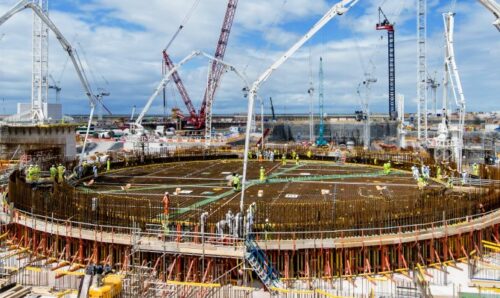
Nuclear disaster news: a case study.
Marika Hietala, Ph.D. researcher from The University of Sheffield, discusses and compares how the news of the Fukushima Daiichi nuclear disaster was distributed in West Cumbria (UK) and Satakunta (Finland). Fukushima: Initial reception When the nuclear disaster occurred in Fukushima in March 2011 I was busy with my undergrad dissertation and as a result, oblivious to […]

Fukushima – pointing the finger
The sheer amount of media coverage of the 2011 Fukushima Daiichi nuclear disaster has been nothing short of staggering. Huge initial television and newspaper coverage of the incident as it unfolded bloated into a swathe of online articles and blogs by both professional journalists and members of the public. The advent of social media meant […]

Fukushima – the reacton from nuclear engineering communities
The Fukushima-Daiichi meltdowns certainly turned the opinions of many people and governments against nuclear power – including Germany and Italy, the UK being a notable exception. However, the reaction within the nuclear research and engineering community itself has not been one of ‘radical re-thinking’ or ‘course changes’. Amongst technologists, what transpired in Japan isn’t really […]

Morality in the media?
The 11th of March marks the 5 year anniversary since the nuclear disaster in Fukushima. Osman uses the opportunity to discuss the responsibility of the media and a moral obligation to represent truth. It’s fairly clear that the popular opinion of nuclear power after the Fukushima incident of 2011 was quite negatively affected. A poll commissioned by the BBC in the immediate […]

Better communication between authorities and the public essential
In March we will be discussing the impact of media coverage of major nuclear disasters, asking how this affects the image, or public perception, of the nuclear industry. New Hitchhiker, PhD student Connaugh Fallon, gets things started with a perspective on Fukushima, before and after a nuclear education. Public perception of the nuclear industry is inevitably shaped by […]

How neo-liberal economics has held back new nuclear build
We finish our discussion of new nuclear with a look into how modern day economics has impacted nuclear power. We live in an economic system constructed around the ideology of neoliberalism. This laissez-faire economic thinking prioritises the free-market and the curtailing of the state, which was actualised in the 1980s by politicians like Ronald Reagan and Margaret […]

A drop in the ocean?
Chloë discusses the UK’s recent nuclear political history, and why choices made in the 80’s might have damaged the future of nuclear energy. The UK currently has 15 nuclear reactors which generate about 18% of our yearly energy consumption1. 14 of these reactors are due to be shutdown by 2030, with the final, Sizewell […]

Why have there not been any new nuclear builds since Sizewell B?
It is no secret that the UK’s public opinion on nuclear power is deeply divided, with only ~ 35 % having a favourable viewpoint on atomic energy.1 This division has left our industry in a state of limbo for some time, resulting in an entire generation of plants being shut down (such as Wylfa’s MW […]

Generation III+, IV, and fusion
Light Water Reactors (LWRs) are Gen II commercial reactors, which were built for an operational lifetime of 40 years. Most of the nuclear reactors built in the 70s and 80s are commercial pressurized (PWRs) or boiling water reactors (BWRs), which are both LWRs. At present, 11% of the world’s electricity comes from these nuclear reactors, they […]

Another EPR, or time for something new?
LWR’s where built en masse in the 70s and 80s, what kind of reactor are we likely to see in a nuclear renaissance? We are currently in the third generation of nuclear power stations. These power stations boast increased thermal efficiency, improved fuel technology and standardized designs compared to the generation II reactors currently operating […]

